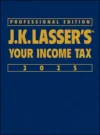Uncashed Retirement Plan Distribution Check Is Taxable
In certain situations, an employer is required to distribute funds held in the company’s retirement plan, after withholding 20%. But what happens if the individual fails to cash the check?
The IRS considered the situation in which an employer was required to distribute $900 from its qualified retirement plan to an individual in 2019. All of the funds were the result of deductible contributions, so the individual had no basis in the account that would have made part of any distribution tax free. She received the check in 2019 and could have cashed it, but did not.
The IRS ruled that whether the individual keeps the check uncashed, returns it to the company, or cashes it the following year does not impact the tax treatment of the distribution (Rev. Rul. 2019-19, 2019-36 IRB 674). It is includable in the individual’s gross income in the year it is distributed. In other words, a taxpayer cannot avoid or postpone the receipt of income by simply not cashing a check that represents income.
Note: Depending on the type of distribution, an individual could postpone tax on the distribution by making a rollover within 60 days. This option does not apply to a required minimum distribution (RMD).
Tenants in common
Two or more persons who have undivided ownership rights in property. Upon death of a tenant, his or her share passes to his or her estate, rather than to the surviving tenants.



